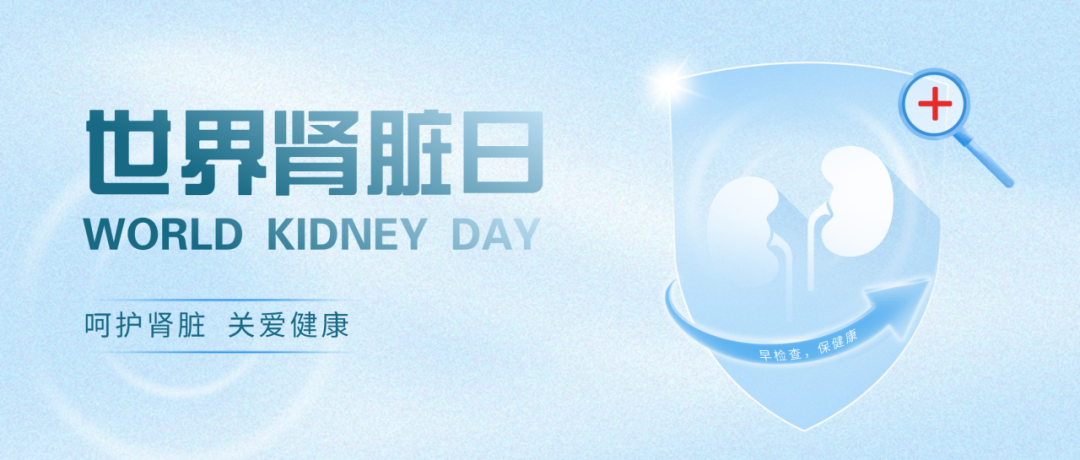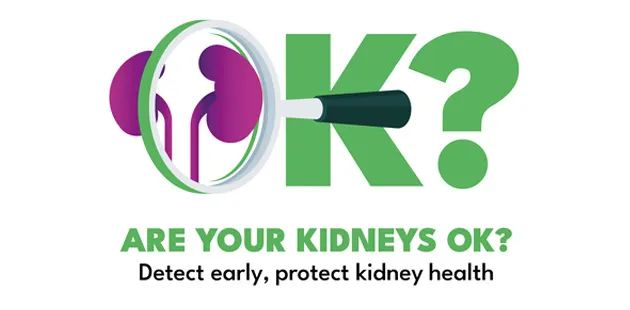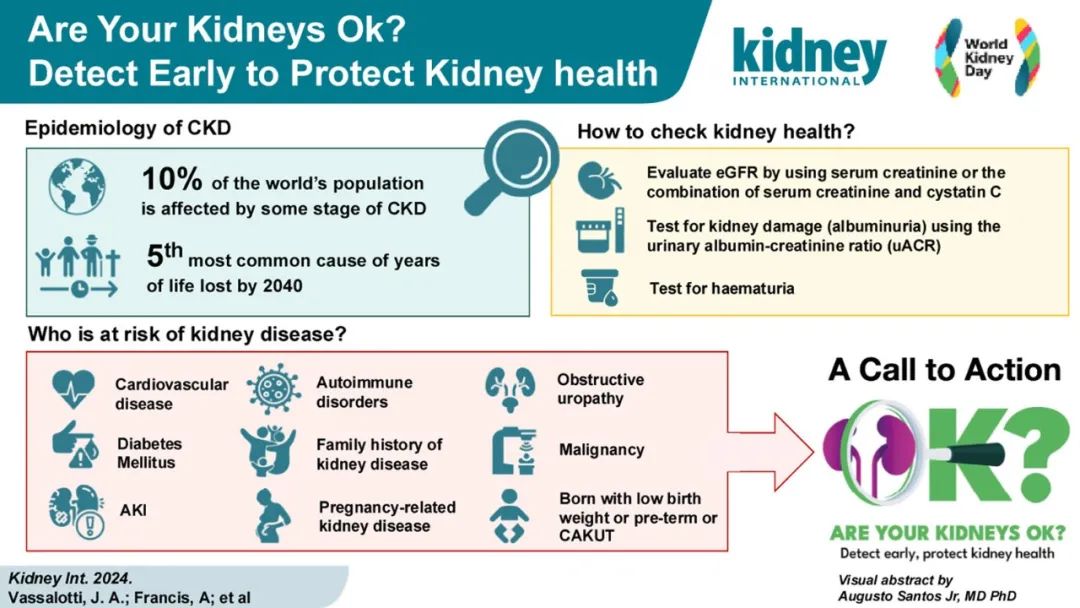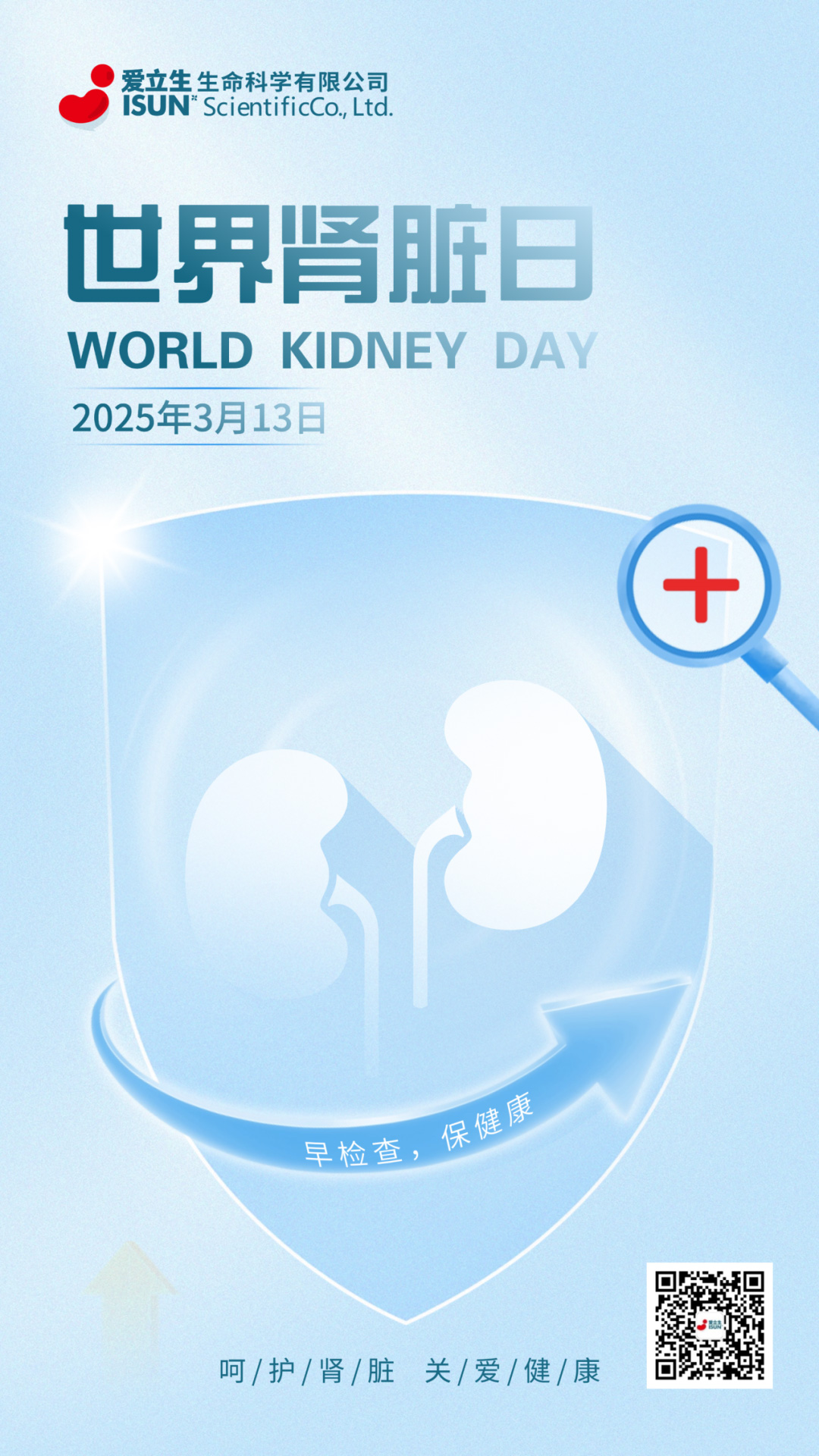


On March 13, 2025, the 20th World Kidney Day, with the theme of "Is Your Kidney Okay? Early Check, Keep Healthy", once again sounded the alarm to the world: the hidden and high-risk harm of chronic kidney disease (CKD).

Image source: International Society of Nephrology
CKD is a significant global public health issue affecting over 850 million people. If not intervened in a timely manner, kidney disease may progress to kidney failure, leading to serious complications and even death. It is expected that by 2040, CKD will become the fifth leading cause of shortened life expectancy worldwide.
Word Kidney Day
Pay attention to high-risk populations and detect kidney disease early
High risk individuals should undergo regular kidney health check ups
Main risk factors: diabetes, hypertension, cardiovascular disease, obesity, family history of kidney disease
Other risk factors: history of acute kidney injury, pregnancy related kidney disease, autoimmune diseases, low birth weight or premature birth, urinary tract obstruction, recurrent kidney stones, abnormal development of the kidneys or urinary system; And heatstroke, snake bites, environmental toxins, toxic drugs, viral and parasitic infections, etc

Image source: International Society of Nephrology
Word Kidney Day
Promote early detection and reduce disease burden
Assessing kidney health through simple, non-invasive, and cost-effective testing methods
Monitoring blood pressure: controlling hypertension and reducing kidney damage
Calculate Body Mass Index (BMI): Focus on the impact of overweight and obesity on the kidneys
Urinalysis: Evaluate the degree of renal injury by testing the urinary albumin creatinine ratio (uACR)
Blood examination: test glycosylated hemoglobin or fasting/random blood glucose screening for type 2 diabetes; Estimation of glomerular filtration rate (eGFR) using serum creatinine and cystatin C to assess renal function
Word Kidney Day
Strengthen personnel training and increase inspection opportunities
Training grassroots medical personnel, clinical routine diagnosis and treatment should include kidney disease examination
Incorporate kidney disease screening into community physical examinations, integrate common disease screening resources, reduce costs, and improve efficiency
Popularize public health knowledge, conduct health education through multiple channels, enhance health awareness, and strengthen self-management
Text source: Nephrology Branch of Chinese Medical Association
